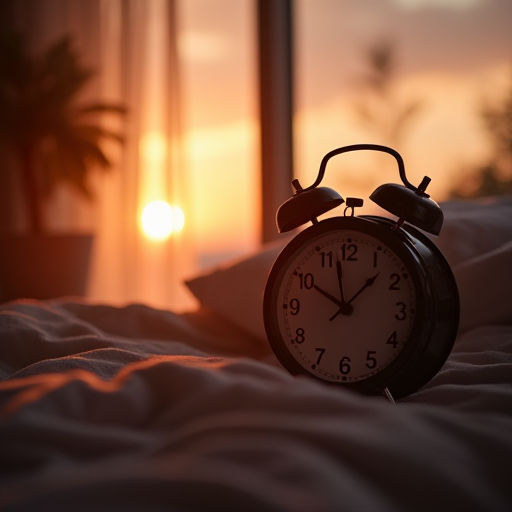
Why Do Some People Wake Up Just Before Their Alarm?
Waking up just before your alarm clock goes off is a phenomenon that many people have experienced. It can be both puzzling and intriguing, leading one to wonder if there's a scientific explanation or if it's simply a quirk of human nature. This article delves into the reasons why some people consistently wake up moments before their alarm is set to ring.
Biological Clocks and the Circadian Rhythm
The Role of the Circadian Rhythm
At the core of this phenomenon is the human body's internal clock, known as the circadian rhythm. This 24-hour cycle governs various physiological processes, including sleep-wake patterns. The circadian rhythm is influenced by environmental cues such as light and temperature, helping the body to anticipate changes in the environment and adjust accordingly.
The Suprachiasmatic Nucleus (SCN)
Within the brain, the suprachiasmatic nucleus (SCN) acts as the primary regulator of the circadian rhythm. Located in the hypothalamus, the SCN receives information about light exposure from the eyes and uses this data to coordinate the timing of bodily functions. This mechanism helps the body to predict and prepare for the transition between sleep and wakefulness.
The Mechanism of Anticipation
The Pre-Alarm Mechanism
Studies suggest that the body can anticipate the time to wake up based on habitual sleep patterns. When you consistently wake up at the same time each day, your body learns to predict this schedule. This anticipation is due to the release of certain hormones, such as cortisol, which begin to rise in the early morning hours to prepare the body for wakefulness.
Cortisol and the Wake-Up Process
Cortisol, often referred to as the "stress hormone," plays a crucial role in metabolism, immune response, and the sleep-wake cycle. The gradual increase in cortisol levels before waking helps to elevate alertness and reduce sleep inertia, making it easier to transition from sleep to waking. For those who wake up just before their alarm, this process may occur slightly earlier, nudging them into wakefulness before the alarm sounds.
Psychological Factors
The Power of Expectation
Psychology may also play a role in waking up before an alarm. When individuals set an alarm, there is a subconscious expectation to wake up at that time. This expectation can create a mental alertness that influences the body's internal clock. Particularly for those who have a strong desire to avoid the jarring sound of an alarm, this mental preparedness can contribute to waking up slightly earlier.
Anxiety and Alarm Sensitivity
For some, anxiety about oversleeping or being late can heighten sensitivity to the alarm time. This anxiety can cause lighter sleep stages in the early morning, increasing the likelihood of waking up before the alarm as a precautionary measure.
Lifestyle and Habitual Influences
Consistent Sleep Routine
Individuals who maintain a regular sleep schedule are more likely to experience pre-alarm wakefulness. Consistency strengthens the body's internal clock, making it more adept at predicting wake times. Conversely, irregular sleep patterns can disrupt this synchronization, reducing the likelihood of waking naturally before an alarm.
Sleep Quality and Duration
High-quality sleep, characterized by adequate duration and restful cycles, supports the body's ability to wake naturally. Poor sleep quality or insufficient sleep can impair the circadian rhythm, making pre-alarm wakefulness less common.
Conclusion
Waking up just before an alarm is a fascinating interplay of biology, psychology, and lifestyle. While the exact mechanisms can vary from person to person, it is clear that the body's internal clock plays a pivotal role in this phenomenon. By understanding the factors that contribute to pre-alarm wakefulness, individuals can gain insights into their own sleep patterns and potentially enhance their overall sleep quality. Whether driven by biological rhythms or psychological factors, waking up naturally before an alarm can be a refreshing start to the day, free from the abruptness of an alarm clock's ring.
